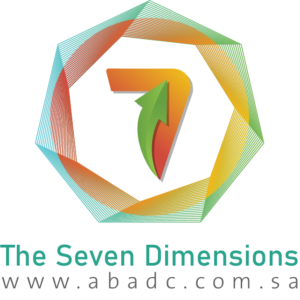
What is hyperactivity disorder and distractions?
Attention Deficit Hyperactivity Disorder (ADHD) is one of the most common mental disorders.
- Attention Deficit: Inability to maintain concentration for a long time.
- Hyperactivity: Excessive movement that does not fit the situations.
- Rush: Impulsive actions that occur in the moment without thinking.
Attention Deficit Hyperactivity Disorder (ADHD) is a chronic disorder that may affect many aspects of an individual’s life, academics, and professional careers. It may also affect the individual’s daily performance and personal relationships. And poor self-esteem.
Adults diagnosed with ADHD may suffer from poor self-esteem, sensitivity to criticism, increased self-criticism, The evaluation of attention-deficit/hyperactivity disorder in adults varies from one individual to another.
There are 8.4% of children and 2.5% of adults diagnosed with ADHD, Therefore, the disorder is often first identified in school-age children and some of its symptoms appear in the classroom or some problems at school.
The diagnosis of ADHD in males is more common among females due to differences in how symptoms present. This does not mean that males are more likely to be diagnosed with ADHD, as males tend to display hyperactivity more than females.
Symptoms and diagnosis
Many children may have difficulties sitting and waiting for turns, not paying attention, and acting impulsively, Children who meet all diagnostic criteria for ADHD may differ in that their symptoms of hyperactivity, impulsivity, disorganization, and inattention are significantly greater for their age or developmental level. These symptoms may lead to great suffering and may cause some problems at home, school, work, and in relationships as well.
There are three main types of ADHD
- Distraction and inattention.
- Hyperactivity/impulsivity
- Common symptoms.
Diagnosis is based on the presence of persistent symptoms that have occurred over a significant period of time within the past six months. While ADHD can be diagnosed at any age, It begins in early childhood, and when considering a diagnosis, the symptoms must have been present before the individual reached 12 years of age, and the symptoms must have caused difficulties in more than one place, for example, Symptoms can’t just happen at home.
Type I: Distraction and inattention
Inattentiveness refers to the challenges that force an individual to stay on task, focus, and organize. This type of ADHD is diagnosed as (occurring six or five for individuals ages 17 or older) of the following symptoms frequently:
- Lack of attention to details or making some mistakes at school or in job tasks.
- Problems concentrating on tasks or activities, Such as during lectures, conversations, or long reading.
- He doesn’t seem to listen when you talk to him as if he is somewhere else.
- Not following instructions and not completing schoolwork or chores May start tasks but quickly lose focus.
- Problems organizing tasks and work, for example, Lack of good time management and chaotic, unorganized work.
- Avoid tasks that require sustained mental effort, Such as preparing reports and completing forms.
- Loss of important things of daily life, Such as school papers, books, keys, wallet, cell phone and glasses.
- Forgetting daily tasks Teens and older adults may also forget to return phone calls, pay bills, and keep appointments.
Type II: Hyperactivity and impulsivity
Hyperactivity refers to excessive movement such as getting bored quickly, excessive energy, and not sitting and talking continuously. Impulsivity refers to decisions or actions taken without thinking about the consequences. The diagnosis of this type of ADHD indicates that (occurring six or five for individuals ages 17 or older) the following symptoms occur frequently:
- Boredom or tapping of the hands or feet, Or not sitting properly.
- Inability to remain in the classroom and workplace.
- Running inappropriately.
- Inability to play or do recreational activities quietly and talk a lot.
- Blurring the answer before finishing the question, finishing people’s sentences, and not waiting to speak in conversations.
- Difficulty waiting for turns, such as waiting in line.
- Interrupting others example, Interrupting conversations, games, or activities and starting to use other people’s things without their permission.
Type III: Common symptoms
This type is diagnosed when both criteria for distraction, inattention, and hyperactivity/impulsivity are present.
ADHD is usually diagnosed by mental health providers or primary care providers. Psychological evaluation includes a description of symptoms from the individual and caregivers and completion of scales and questionnaires by the individual, caregivers and teachers, A complete psychological and medical history, and family history, Information related to education, environment and upbringing. It may also include a referral for medical evaluation to rule out other medical conditions.
note: It is important that many conditions can mimic ADHD such as learning disorders, mood and anxiety disorders, head injuries, thyroid disease, and the use of certain medications such as stimulants ADHD may also overlap with other mental health conditions, Such as conduct disorder, anxiety disorders, and learning disorders, so a complete psychological evaluation is very important.
Are there specific blood tests for ADHD?
There are no specific blood tests or routine imaging to diagnose ADHD and some may be referred for additional psychological testing (such as neuropsychological or psychoeducational testing) and subjected to computer tests to assess the severity of symptoms.
Causes of attention deficit hyperactivity disorder
Scientists have not yet identified the specific causes of ADHD, and genes can contribute to ADHD. No specific genes or gene combination has been identified as the cause of the disorder. It is important to note relatives diagnosed with ADHD. Several non-genetic factors such as low birth weight, premature birth, exposure to toxins (alcohol, smoking, lead) during pregnancy, and severe stress during pregnancy have also been linked to it.
Is there evidence that the brains of children diagnosed with ADHD are different?
Yes, There is evidence of differences in the brains of children diagnosed with ADHD compared to other children without a diagnosis.
treatment
Treatment for attention-deficit/hyperactivity disorder includes medication and educational intervention. For preschool and younger children, the plan should include behavioral strategies in training the family to manage behavior.
According to current guidelines, Psychostimulants are first-line pharmacological treatments for the management of ADHD. For preschool-aged individuals diagnosed with attention-deficit/hyperactivity disorder, Amphetamines are the only medication approved by the Food and Drug Administration, and there are new medications approved by the US Food and Drug Administration to treat ADHD.
Many children and families can choose from different medications depending on the effectiveness of treatment and the individual’s tolerance to the medication. The goal of treatment is to improve symptoms to restore functioning in normal daily life, at home, and at school.
Children diagnosed with attention-deficit/hyperactivity disorder (ADHD)
Teachers and school staff can provide parents and clinicians with information to help evaluate behavior and learning problems and can assist with behavioral training, School personnel cannot diagnose ADHD, make decisions about treatment, or require a student to take medication to attend school; Parents can only make these decisions with the child’s health care physician. Students whose ADHD affects their learning may be eligible for special education under the Individuals with Disabilities Education Act of 1973.
Children diagnosed with ADHD can benefit from study skills in a classroom setting, alternative teaching techniques, and a modified curriculum.
Adults diagnosed with attention-deficit/hyperactivity disorder (ADHD)
Many children diagnosed with ADHD continue to meet criteria for the disorder for much of their lives, They may present with some problems that may require ongoing treatment.
Is ADHD only diagnosed in childhood?
Sometimes ADHD may not be diagnosed during childhood and many adults do not realize they have been diagnosed with ADHD. A comprehensive evaluation usually includes a review of past and present symptoms, a medical and historical examination of the condition, and the use of adult rating scales or checklists.
Adults diagnosed with ADHD are treated with medications or psycho-educational therapy, behavior management strategies, and support from parents.
Reference:



